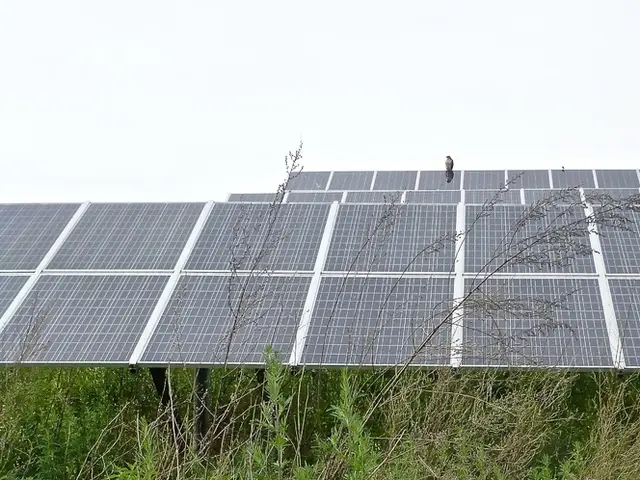Trump takes significant action against clean energy by imposing Energy Department reductions
The Trump administration's decision to cancel $3.7 billion in federal funding for 24 green industrial projects has raised concerns within the U.S. manufacturing sector. The funding, distributed under the Industrial Demonstrations Program at the Energy Department's Office of Clean Energy Demonstrations, was intended to bolster the manufacturing sector with a major investment in technologies.
The projects that were to receive the funding included installing industrial heat pumps at up to 10 plants where Kraft Heinz Co. produces foodstuffs, an electric boiler for one of Kohler Co.'s Arizona factories, and a heat battery for Eastman Chemical Co.'s facility in Texas. These projects were designed to cut planet-warming pollution from generating heat used in factories.
Marcela Mulholland, a former official at the Office of Clean Energy Demonstrations, stated that public investment was necessary to scale technologies in the "valley of death" where the private sector struggled to advance. The canceled funding was expected to gather information through the projects that could be used broadly throughout U.S. industry to improve output and bring down energy costs.
The cancellation of the funding is associated with the Energy Department's Office of Clean Energy Demonstrations facing embattlement. The organizations most affected by the cancellation are industrial and energy companies involved in green technologies, particularly those planning large-scale, capital-intensive projects. They would likely try to secure funding through state-level subsidies, private investments, or by lobbying the government for alternative support programs or future federal allocations.
The Center for Climate and Energy Solutions (C2ES) and the American Council for an Energy-Efficient Economy believe that the cancellation of the funding is a significant setback for clean heat in the U.S. The data and lessons learned in de-risking this technology were expected to translate into follow-up investment in the private sector.
Without the funding, U.S. companies risk falling behind competitors who benefit from lower-cost labor and easily accessible components from nearby industrial clusters, such as those in Vietnam, China, or Germany. The cancelled funding was estimated to generate hundreds of thousands of jobs in direct construction, operations, and indirect hiring at real estate firms, restaurants, and retailers near the industrial sites.
U.S. industry had the chance to develop new approaches that could produce greener and cheaper materials with the cancelled funding, potentially giving American manufacturers an edge over Asian or European rivals. The loss of this opportunity could have long-term implications for the U.S. manufacturing sector's competitiveness.
Read also:
- Industrial robots in China are being installed at a faster rate than in both the United States and the European Union, as the global market for these robots faces a downturn.
- EAFO Research Uncovers Crucial Elements in Electric Vehicle Adoption within the EU
- Excess Solar Energy in the Grid: Challenges for Photovoltaic System Owners
- Sungrow and EP Produzione Sign Contract for a 220 MWh Battery Storage Venture in Sicily








